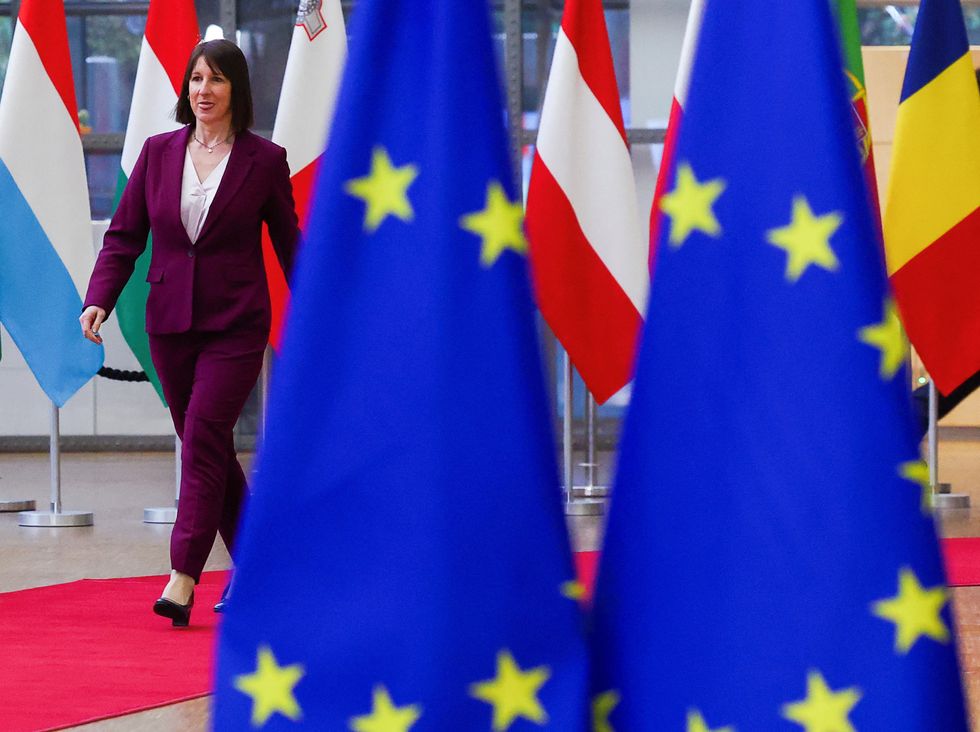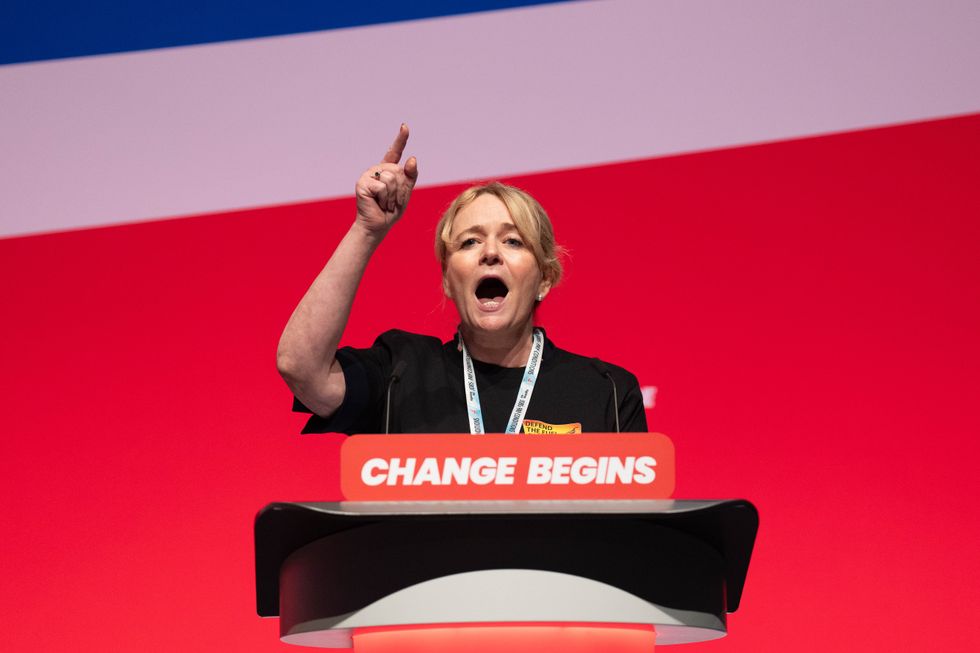Susanna Siddell
Guest Reporter
Rachel Reeves has been left bracing for a clash with trade union paymasters after Labour agreed to an “insulting” 2.8 per cent pay rise for public sector workers.
Sir Keir Starmer’s Labour Government believes that these increased salaries remain competitive and reflective of the “challenging financial backdrop”.
The offer sits just marginally above the projected inflation rate of 2.6 per cent but marks a significant reduction from the 5.5 per cent awards given to teachers and nurses for 2024/25.
However, departments across Whitehall have been warned that their desired pay rises must be funded from their individual budgets.

Consequently, unions are already signalling potential clashes with the Government over the increase.
Departments have been instructed to fund these pay rises from within their existing budgets, creating additional financial pressure.
The Treasury has issued a warning about potential recommendations from independent pay review bodies that if higher awards are recommended, departments will need to find ways to cover extra costs through cuts or increased productivity measures.
This move has put departments in a challenging position of potentially having to choose between pay rises and maintaining current service levels.
NHS England and the Department of Health and Social Care have warned that exceeding the 2.8 per cent increase would jeopardise patient care and lengthen waiting lists.
LATEST DEVELOPMENTS:
They said that even a half per cent rise above this level would result in 300,000 fewer operations and appointments.
"We have already made significant prioritisation decisions," NHS England said. "Pay awards above what has already been allocated will require further tough re-prioritisation... significantly impacting patient care."
The health service emphasised that higher increases would make NHS staff's daily work even more challenging.
Unison’s head of health Helga Pile said: “The Government has inherited a financial mess from its predecessors, but this is not what NHS workers wanted to hear.
“Staff are crucial in turning around the fortunes of the NHS. Improving performance is a key government pledge, but the pay rise proposed is barely above the cost of living.”
Unite general secretary Sharon Graham added: “The NHS recruitment and retention crisis will not be solved without taking the issue of restorative pay seriously. The NHS still desperately needs to attract more workers after 14 years of below inflation pay increases.

“This latest below inflation pay recommendation is an insult to dedicated NHS staff and further evidence that the pay review body is broken beyond repair.
“Unite has long been saying that NHS pay concerns must be resolved through direct negotiations with government.”
The National Education Union warned the unfunded increase would worsen existing problems, with General Secretary Daniel Kebede stating it "would only deepen the crisis in education."
"We need an above-inflation increase as part of a series of urgent steps to achieve the major pay correction needed to restore the pay lost and tackle teacher shortages," he said.
He called for the government to abandon "failed Conservative austerity" and fully fund necessary pay increases.
"Our members care deeply about education and feel the depth of the crisis. This won't do," Kebede warned.
Find Out More...
Sir Keir Starmer’s Labour Government believes that these increased salaries remain competitive and reflective of the “challenging financial backdrop”.
The offer sits just marginally above the projected inflation rate of 2.6 per cent but marks a significant reduction from the 5.5 per cent awards given to teachers and nurses for 2024/25.
However, departments across Whitehall have been warned that their desired pay rises must be funded from their individual budgets.

Consequently, unions are already signalling potential clashes with the Government over the increase.
Departments have been instructed to fund these pay rises from within their existing budgets, creating additional financial pressure.
The Treasury has issued a warning about potential recommendations from independent pay review bodies that if higher awards are recommended, departments will need to find ways to cover extra costs through cuts or increased productivity measures.
This move has put departments in a challenging position of potentially having to choose between pay rises and maintaining current service levels.
NHS England and the Department of Health and Social Care have warned that exceeding the 2.8 per cent increase would jeopardise patient care and lengthen waiting lists.
LATEST DEVELOPMENTS:
- Reform’s funding boost the ‘beginning of the end for the Tories’ as Nigel Farage takes ‘revenge’
- Pro-Gaza MP speaks out AGAINST banning first-cousin marriages as it 'helps build family bonds'
- James Heale says Nick Candy joining Reform is a 'worrying thing for the Tories come 2029'
They said that even a half per cent rise above this level would result in 300,000 fewer operations and appointments.
"We have already made significant prioritisation decisions," NHS England said. "Pay awards above what has already been allocated will require further tough re-prioritisation... significantly impacting patient care."
The health service emphasised that higher increases would make NHS staff's daily work even more challenging.
Unison’s head of health Helga Pile said: “The Government has inherited a financial mess from its predecessors, but this is not what NHS workers wanted to hear.
“Staff are crucial in turning around the fortunes of the NHS. Improving performance is a key government pledge, but the pay rise proposed is barely above the cost of living.”
Unite general secretary Sharon Graham added: “The NHS recruitment and retention crisis will not be solved without taking the issue of restorative pay seriously. The NHS still desperately needs to attract more workers after 14 years of below inflation pay increases.

“This latest below inflation pay recommendation is an insult to dedicated NHS staff and further evidence that the pay review body is broken beyond repair.
“Unite has long been saying that NHS pay concerns must be resolved through direct negotiations with government.”
The National Education Union warned the unfunded increase would worsen existing problems, with General Secretary Daniel Kebede stating it "would only deepen the crisis in education."
"We need an above-inflation increase as part of a series of urgent steps to achieve the major pay correction needed to restore the pay lost and tackle teacher shortages," he said.
He called for the government to abandon "failed Conservative austerity" and fully fund necessary pay increases.
"Our members care deeply about education and feel the depth of the crisis. This won't do," Kebede warned.
Find Out More...